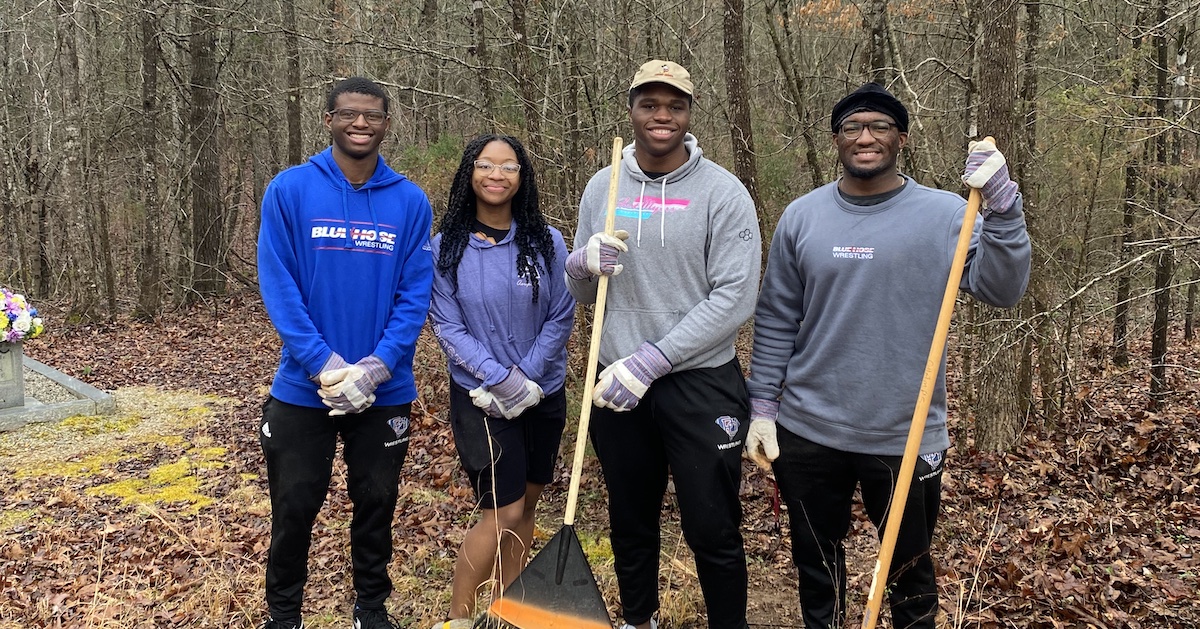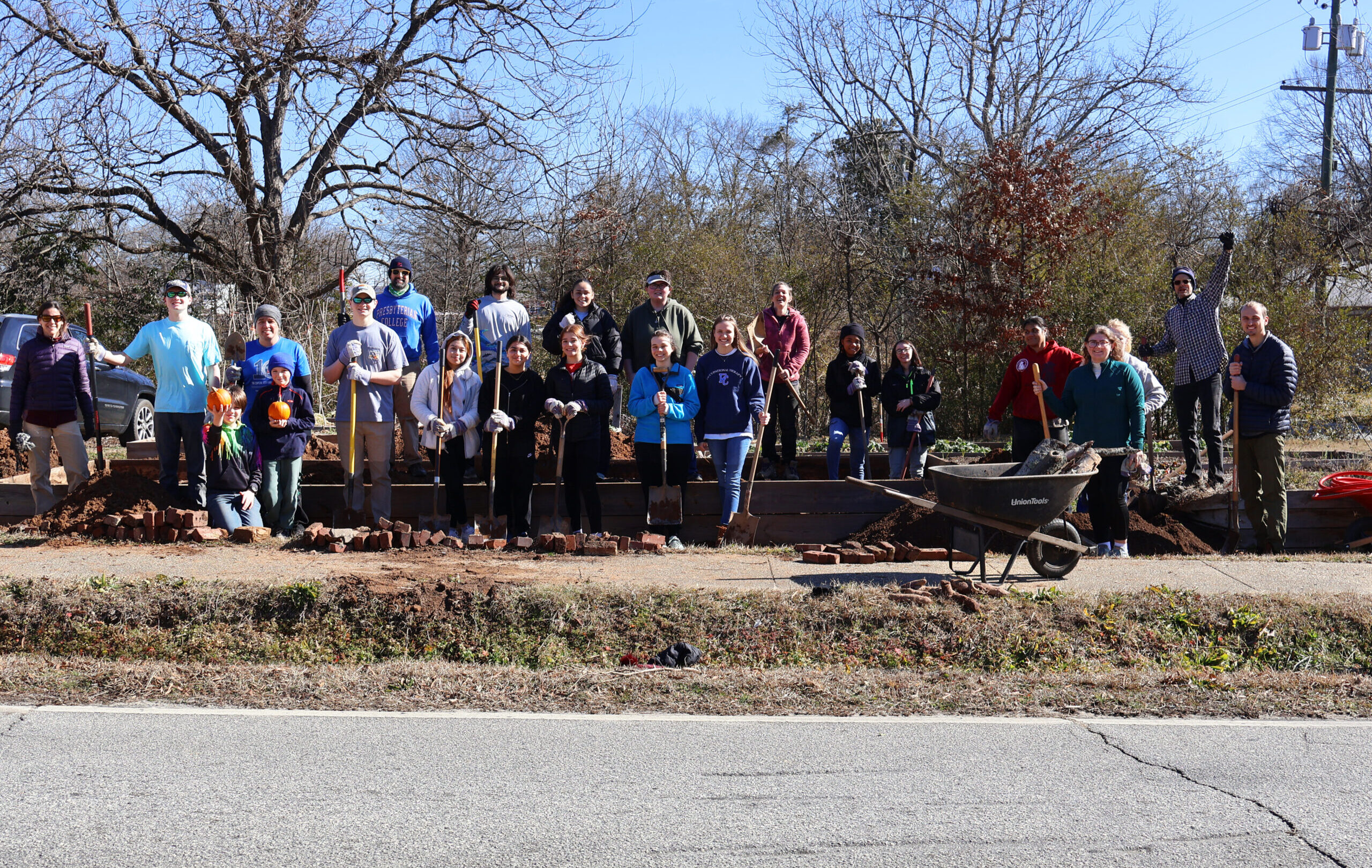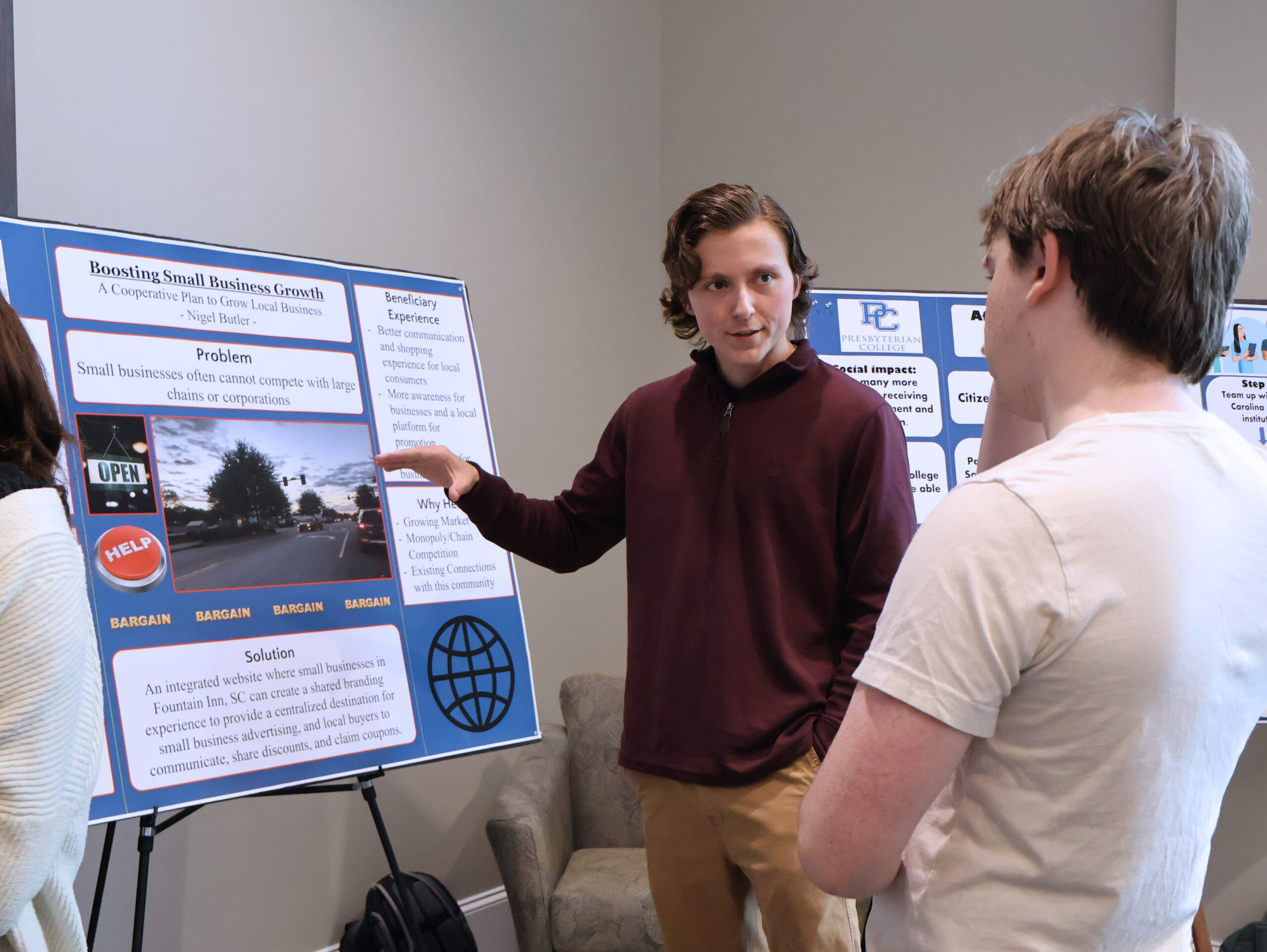Transform Your Community. Win a Scholarship.
The Service Entrepreneurship Scholarship Competition gives high school seniors and transfer students from the U.S. the opportunity to win a comprehensive scholarship by creating a plan to solve a real problem in their community.
This competition embodies our commitment to developing leaders who see challenges as opportunities to make a meaningful difference.
The Challenge
The challenge is to create a community service project that solves a real problem and makes a lasting difference. We’re seeking students who can:
- Identify a compelling problem in their community
- Develop an innovative, sustainable solution
- Create a detailed implementation plan
- Demonstrate how their solution will improve lives
Award Opportunities
| Award Level | Scholarship Value | Additional Benefits |
|---|---|---|
| Winner(s) | Up to $59,200/year ($236,800 total) | Coaching, mentoring, and independent study credit to implement your plan |
| Runner(s)-up | Up to $34,000/year ($136,000 total) | Coaching, mentoring, and independent study credit |
| Honorable Mention(s) | Up to $30,000/year ($120,000 total) | Coaching, mentoring, and independent study credit |
Please note the following important points regarding this scholarship:
- Coverage Limitations: The scholarship is applicable only for fall and spring semesters. Any courses taken during Maymester or summer sessions are the sole responsibility of the student.
- Exclusions: This scholarship does not cover the cost of books, premium housing, or other personal expenses. Students are encouraged to budget for these additional costs as they pursue their academic goals.
- Renewal criteria: Scholarship is renewed for three years. Continued eligibility for the scholarship is contingent upon the student maintaining a minimum 3.0 cumulative GPA at PC.
- Changes in Circumstances: The scholarship amount and coverage may be subject to change based on institutional policies, funding availability, or changes in a student’s enrollment status.
- Acceptance: By accepting this scholarship, students agree to adhere to all terms and conditions outlined herein.
- The Service Entrepreneurship Scholarship cannot be combined with other PC merit scholarships. If you’ve already been offered a scholarship, it will be replaced by this award.


Important dates
NOV 1
1. Apply to Presbyterian College
2. Submit your proposal
NOV 17-21
Virtual Semi-Finals
DEC 5-6
Finals Held on the PC Campus
Real Students. Real Impact.
Want to change your community—and your future? These past winners of the Service Entrepreneurship Competition turned their ideas into action. From launching mobile markets to creating mental health resources and medical equipment banks, they’re proof that one student can make a big difference. What will you do?



Real Students. Real Impact.
Want to change your community—and your future? These past winners of the Service Entrepreneurship Competition turned their ideas into action. From launching mobile markets to creating mental health resources and medical equipment banks, they’re proof that one student can make a big difference. What will you do?
Proposal Guidelines
Your submission should address these key areas:
Problem Statement
What problem are you solving, and why is it a compelling problem?
- Describe the problem.
- Explain how you noticed the problem.
- Outline how the issue is being addressed today, if it is being addressed, and why current solutions are not working.
Solution Design
What is your solution, and how will it create change in your community?
- Describe your solution to the problem.
- Demonstrate the potential for the solution to add value.
- Explain how the solution is sustainable (how it will be a long-term or permanent solution and not one that will only last for a short amount of time).
- Explain how the solution will be measured.
Implementation Timeline
What is your projected timeline for implementing your solution?
- Provide a projected timeline for implementing your solution.
- Clearly state your plan for execution.
Guidance
What guidance from qualified parties informed your proposal?
- Include the resources or guidance from qualified parties that informed your proposal.
- Include if anyone has attempted this problem before. If so, what was the result? Why do you think their solution wasn’t successful?
- Identify potential barriers that would keep someone from executing this solution.
- Provide any examples from your personal experience.
Materials
What resources will you use to solve the problem?
- Explain the resources you already have at your disposal.
- Explain the resources you’ll need to solve the problem.
- Explain how you’ll use these resources.
How We Evaluate Entries
Finalists will advance through two stages of evaluation. The semi-final round will be held virtually during the week of November 17. Selected students will then be invited to Presbyterian College on December 5–6 to compete in the final round for scholarships.
During the semi-final round, students will present their proposals in a 10-minute virtual meeting with the director of the Service Entrepreneurship Program and other judges. Finalists will then defend their proposals in a 15-minute session during the final round. The judging panel typically includes business leaders, philanthropists, impact investors, representatives from capacity-building organizations, and successful social entrepreneurs, who provide valuable feedback and evaluate each proposal’s potential impact.
Your proposal will be judged based on your concept and execution:
Concept (50%)
- Innovative Approach: Clear understanding of the issue, recipients, and feasibility.
- Social Impact: Potential for substantial, sustainable contribution.
- Community Connection: Demonstrated understanding of the community served.
Execution (50%)
- Team Capabilities: Relevant skills, experience, and diverse perspectives
- Community Engagement: Personal experience or community involvement
- Contextual Awareness: Understanding of regulatory landscape and potential risks
- Resource Planning: Sensible funding and resource acquisition plan
- Measurement Strategy: Practical approach to tracking outcomes
- Communication: Persuasive presentation of idea and potential


Heart of Service: The Blue Hose Difference
Being a Blue Hose means seeing the world through the lens of service. At Presbyterian College, you’ll be transformed in mind, heart, and spirit—achieving more than you thought possible.
Our commitment to service isn’t just a program; it’s woven throughout everything we do. This competition is your chance to join a community where service is the air we breathe, where you’ll be raised to your highest potential while making a meaningful difference in the lives of others.

